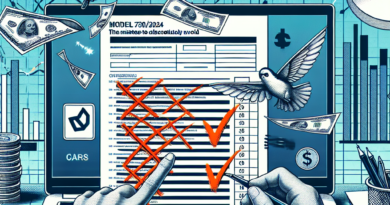Why doesn't accepting the pre-filled 730 save you from checks?
Accepting the pre-filled 730 without modifications saves the taxpayer from preventive checks.
What does this mean? Does accepting the 730 prepared by the Revenue Agency without making any changes allow that tax return to be taken "as good" without any checks being carried out? This is not exactly the case and in this article we will see why, also explaining the difference between preventive and subsequent checks, hence the presentation of the pre-compiled form without modifications does not save.
What are the preventive checks of the 730? The preventive checks of the 730 form are those that in some way can block the possible reimbursement of the liquidation of the credit emerging from the tax return.
Preventive checks are usually triggered, blocking reimbursements, when the declaration presents elements of inconsistency with the established data or when the reimbursement due has an amount that exceeds 4,000 euros.
Accepting the pre-compiled 730 without modifications has the sole advantage of not running into preventive checks and therefore not running the risk of seeing any reimbursement of the 730 due blocked pending further checks on deviations in the amounts or elements of inconsistency.
However, it does not save from subsequent checks on the correctness of the data declared.
read also Refund 730/2023, when is it blocked and what does the Revenue Agency control? Acceptance without modification of the pre-compiled 730 is the taxpayer's responsibility.
Accepting the pre-compiled 730 and sending it without making changes, therefore, does not save the taxpayer from any subsequent checks.
In fact, the taxpayer also has the burden of monitoring the data entered by the Revenue Agency to verify its correctness.
The tax administration, in fact, could be in possession of incorrect or incomplete data which effectively leads to the preparation of a non-compliant tax return.
Accepting and sending a tax return which, for example, does not include all the income actually received places the taxpayer at the risk of investigations for unfaithful declaration which, we remember, is punishable with penalties ranging from 90% to 180% of the higher tax due.
The taxpayer must check the "correctness" of the pre-compiled 730.
What not everyone knows is that for the majority of taxpayers it is still impossible to proceed with sending the pre-compiled 730 without modifications because the latter contains incorrect or incomplete data.
Even if the completeness of the data continues to grow over the years, the preparation is not always correct.
Users mistakenly think that by sending the form prepared by the Revenue Agency, they will not have repercussions or disputes from the tax administration in the future, but unfortunately this is not the case.
If the data present is not correct, it is the taxpayer who has to integrate or modify it, otherwise he runs the risk of receiving, some time later, a notice from the Revenue Agency for evaded taxes with penalties and interest.
For those who are not familiar with tax matters, therefore, the pre-compiled 730 could represent a double-edged sword which, although it allows you to submit the declaration independently, never offers the certainty of having sent it in the correct way.
Precisely for this reason, when there is even the smallest uncertainty, the advice is to contact a Caf for tax assistance in this regard: in this case the verification of the data will be carried out by professionals who rely on paper documents provided by the taxpayer and not from presumed cross-referenced data in the possession of the Revenue Agency (which, as mentioned, in many cases could be incomplete or even incorrect).




